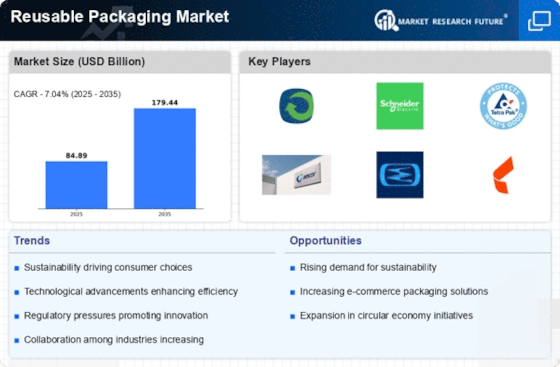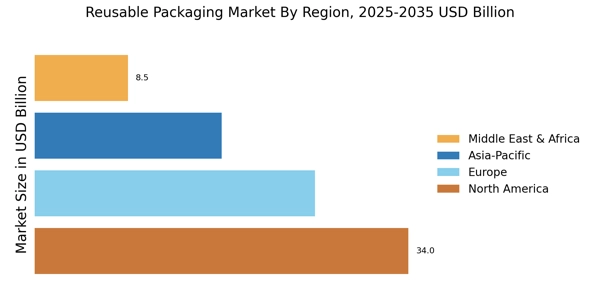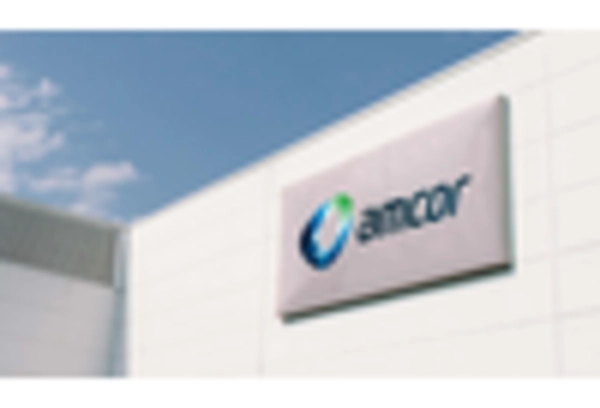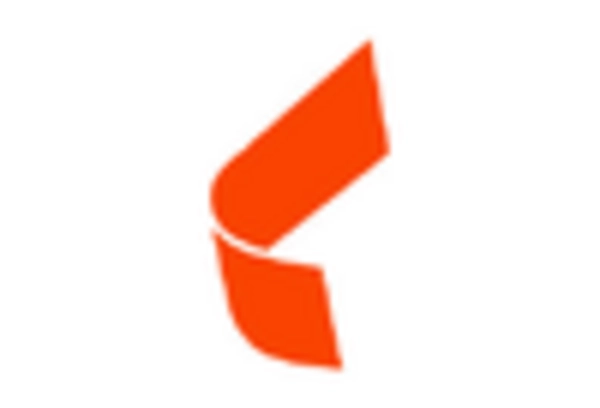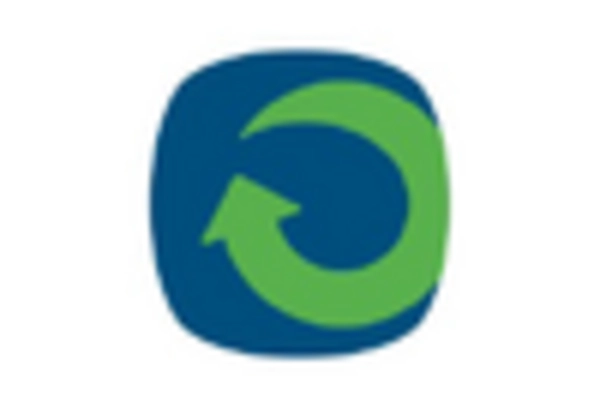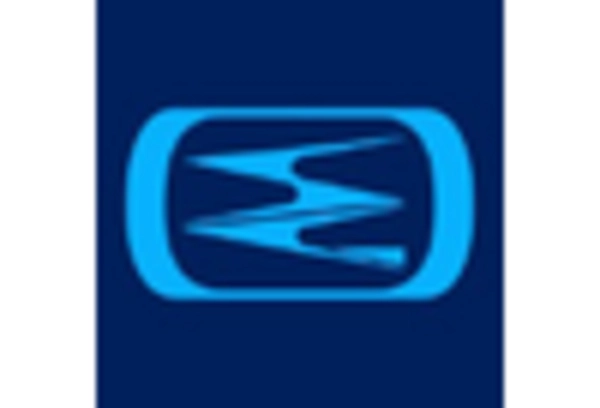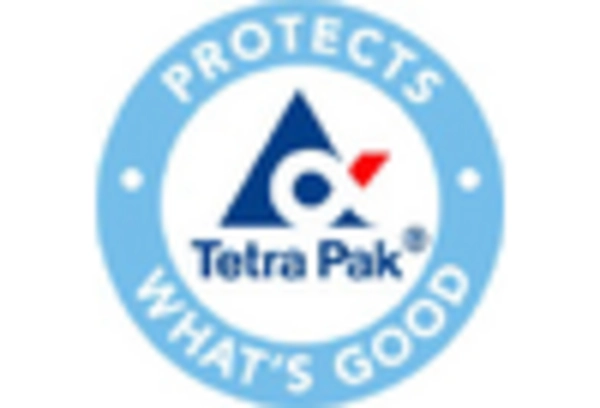Corporate Sustainability Goals
Many companies are setting ambitious sustainability goals, which is significantly influencing the Reusable Packaging Market. Corporations are increasingly recognizing the importance of sustainable practices in their operations, driven by both consumer demand and regulatory pressures. This shift is prompting businesses to transition from traditional packaging methods to reusable alternatives. Reports indicate that companies adopting reusable packaging can reduce their overall packaging costs by up to 30% over time, while also enhancing their brand image. This alignment of corporate strategies with sustainability objectives is likely to propel the market forward, as more organizations commit to reducing waste and improving their environmental impact. The trend suggests a long-term commitment to reusable packaging solutions across various industries.
Rising Environmental Awareness
Consumer awareness regarding environmental issues is a pivotal driver for the Reusable Packaging Market. As individuals become more conscious of their ecological footprint, there is a marked shift towards sustainable consumption patterns. Surveys indicate that a substantial percentage of consumers are willing to pay a premium for products packaged in reusable materials. This trend is particularly evident among younger demographics, who prioritize sustainability in their purchasing decisions. Consequently, businesses are increasingly adopting reusable packaging solutions to meet these evolving consumer preferences. The market is expected to witness a robust expansion, with projections indicating that the demand for reusable packaging could double within the next five years, reflecting a broader commitment to environmental stewardship.
E-commerce Growth and Packaging Needs
The rapid expansion of e-commerce is a significant driver for the Reusable Packaging Market. As online shopping continues to grow, the demand for efficient and sustainable packaging solutions is becoming increasingly critical. E-commerce companies are seeking ways to minimize waste and enhance customer satisfaction through reusable packaging options. Studies indicate that the e-commerce sector is projected to grow by over 20% annually, which will likely increase the demand for innovative packaging solutions. This growth presents an opportunity for businesses to implement reusable packaging systems that not only reduce environmental impact but also streamline logistics. The integration of reusable packaging in e-commerce could potentially reshape the industry, making it a key player in the overall packaging market.
Regulatory Support for Sustainability
The Reusable Packaging Market is experiencing a surge in demand due to increasing regulatory support for sustainability initiatives. Governments are implementing stringent regulations aimed at reducing single-use plastics and promoting eco-friendly packaging solutions. For instance, various countries have introduced policies that incentivize businesses to adopt reusable packaging systems. This regulatory landscape not only encourages companies to innovate but also aligns with consumer expectations for sustainable practices. As a result, the market for reusable packaging is projected to grow significantly, with estimates suggesting a compound annual growth rate of over 10% in the coming years. This regulatory push is likely to reshape the packaging landscape, making reusable options more prevalent across various sectors.
Technological Innovations in Packaging
Technological advancements are playing a crucial role in the evolution of the Reusable Packaging Market. Innovations in materials science and design are leading to the development of more durable, lightweight, and cost-effective reusable packaging solutions. For example, the introduction of advanced polymers and biodegradable materials is enhancing the functionality and appeal of reusable packaging. Additionally, smart packaging technologies, such as QR codes and RFID tags, are being integrated to improve tracking and logistics. These innovations not only enhance the user experience but also contribute to operational efficiencies for businesses. As a result, the market is poised for growth, with estimates suggesting that the adoption of new technologies could increase the market size by approximately 15% over the next few years.


